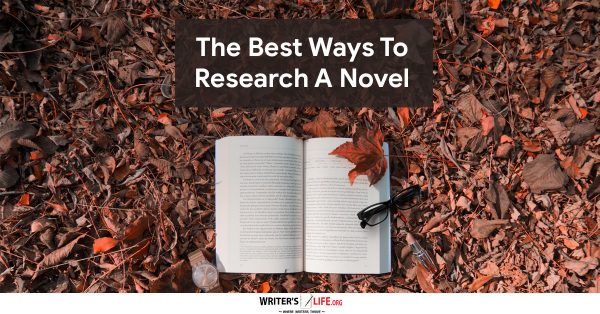- How To Tackle Jealousy In Creative Writing
- Common Submission Mistakes
- How To Stop Your Blog Becoming Boring
- The One Thing Every Successful Writer Has In Common
- How To Make Yourself Aware Of Publishing Scams
- Why Almost ALL Writers Make These Grammar Mistakes At Some Point
- 5 Tips For Authors On How To Deal With Rejection
- Top Mistakes to Avoid When Writing a Novel
- How to Avoid Common New Writer Mistakes
- 10 Mistakes New Fiction Writers Make
The Best Ways To Research A Novel

When you write an article or any other sort of non-fiction content, you know that you are going to have to do some research, but when it comes to fiction writing, it all depends on what your story is about.
Most authors find that regardless of how imaginative and creative their story is, they’ll come to a point where research will be helpful and is likely to add depth and believability to the plot.
There is nothing worse than reading a book and being jarred out of the story because something doesn’t sit right, so if authors aren’t sure of something - and it could be anything such as a particular location, point in history, environment, attitude or occupation - they’d do well to research it to make sure their story stands up.
However, doing proper research can feel daunting to some, so here are some helpful tips to guide you:
Let's take a look at some top tips to get you started.
Create a good system
Before you begin, it’s a good idea to get organized and be clear on precisely what it is you are trying to find out. Research involves collecting information, so you need to come up with an excellent system to categorize it. Otherwise, you’ll end up feeling overwhelmed and no better than when you started. Some things you might need are a folder or ring binder, labels, a filing system (physical and digital), access to spreadsheets and a good old notebook and pen too!
Read as much as you can
We all know that reading is imperative if you want to learn to write well, and when it comes to research reading is vital too. Books, newspapers, websites, leaflets, and libraries can be valuable sources where you can find lots of useful information to absorb.
Look at images
They say an image speaks a thousand words, and certainly when it comes to research images can help you picture in your mind's eye what something is supposed to look like, i.e. the rolling hills of Tuscan,y or the inside of a morgue! Make sure you look at lots of images and make notes about what you see and the senses that the images evoke to help you get a better idea of what you are writing about. Platforms for image gathering such as Pinterest and Instagram can be fantastic for finding lots of similar images around the same theme too.
Check out other forms of media
Videos, films, and documentaries can also be great research aids. You might need to know how to expertly pluck and carve a chicken for example - a quick YouTube search, and you’ll find plenty of how to videos on the subject matter!
Talk to relevant people
Often the best form of research is having conversations with people who are experts in the subjects you are trying to find out about. If your protagonist is a doctor in a hospital, see if you can find one to learn more about what their day to day job is like. If one of your characters suffers from depression, see if you can find someone who knows what that’s like and is willing to talk about their experiences.
See and experience it for yourself
Of course, nothing is quite as powerful as experiencing things for yourself. So if you are able to visit the places you want to include in your book, or have the experiences your character is having (gruesome murder aside perhaps!), then get out there and try to recreate these scenes as much as possible. Keep your eyes and ears open and alert so you can absorb everything you see, hear, smell and feel and can recreate the experience accurately and engagingly on the page.
Remember, while researching your novel is a great idea and demonstrates your commitment to your craft, don’t get stuck in your research or use it as an excuse to procrastinate. Not every detail of your book requires research and readers will allow a little creative license too, so remember that no matter how much research you do, your end goal remains the same, and that’s to get your book written!

Bethany Cadman www.bethanycadman.co.uk





























